Podcast: Play in new window | Download
 In this interview I want to focus on how important body language is when you’re speaking, and not just in front of a lot of people, but just speaking in general. What your body language tells people. Dr. Nick Morgan is one of the top experts on body language and how to make sure it conveys the message you are trying to convey. Dr. Nick Morgan owns Public Words, a company that is helping to create strategies for people who want to become professional speakers.
In this interview I want to focus on how important body language is when you’re speaking, and not just in front of a lot of people, but just speaking in general. What your body language tells people. Dr. Nick Morgan is one of the top experts on body language and how to make sure it conveys the message you are trying to convey. Dr. Nick Morgan owns Public Words, a company that is helping to create strategies for people who want to become professional speakers.
Dr. Nick Morgan is one of America’s top communication theorists and coaches
A passionate teacher, Nick is committed to helping people find clarity in their thinking and ideas—and then delivering them with panache.
Zeb’s Take – Importance of Body Language for Public Speaking
It was a real pleasure talking to Dr. Nick Morgan. A body language expert, he just has such a solid background; he’s done so many good things for so many people out there, so many well respected people in the speaking industry, companies, businesses, the advice he was willing to share with us today was phenomenal. I hope all of you out there listening took notes, because he knows what he’s talking about and he gave some excellent tips and advice today.
In this wrap-up I want to focus on the importance of body language. This is one of the things I struggle with. Recently I’ve been giving speaking engagements, and they’re smaller venues maybe 40-50 people. I’m talking about social media and my whole focus is on the content, the stuff that I’m saying. What Dr. Morgan correctly pointed out is that most people aren’t going to remember what you say. They are going to remember your energy, the way you interact, respond and your body language and what that tells them about the experience and what they’re learning.
If you notice professional speakers, they have that charisma. I’ve seen enough people speaking and you can tell, some of these people are charismatic. But, they are charismatic because they’ve acquired that skill. They are very deliberate with what they choose to do with their body language and the way they convey and represent themselves to others.
I was talking with Adam Whitmer, someone in my mastermind group, he gives speaking engagements all the time. He speaks mostly in the banking industry about regulations, bankers have to go to these events. He wants to become a better speaker, so he’s been going to some training and learning about speaking. He was very clear that a lot of it is your body language and the way you present yourself just like Dr. Nick said. He has seen the difference. Adam said it made a profound difference in the way the audience responded to him once he started applying the rules of body language and using them effectively.
I’ve never applied these things before, because I’m literally just learning. I always knew body language was important, but I never focused on the body language because I always focused on the content. In the future, moving forward, I’m definitely going to be more conscientious about my body language and what that is conveying to the audience that is listening to the message I’m trying to share.
I really appreciate Dr. Nick sharing all his advice today, and not just the body language stuff, but everything he shared. It was extremely eye opening and enlightening.
Connect with us on Facebook, I’d love to hear from all of you. Hear some feedback on the interview and let me know if you have any questions for me or Dr. Nick.
Go out there and find your success!
Find out more about Nick Morgan and Public Words
Visit www.PublicWords.com to get tons of free information about speaking, body language and the business of professional speaking. It’s a real treasure trove of information.
 Quotes
Quotes
- “We teach them a lot about body language. We make them very cool body language experts and then they can begin to take charge of their own body language and then read it better in others. That makes them smarter interpersonally.”
- “One of the classic mistakes that business people make when they’re going into a meeting, pitching a client or are giving a speech is they say, well let me start by telling you a little bit about myself or my company. Frankly, nobody cares about you or your company.”
- “Don’t leave the body language to chance, think about it beforehand. Decide how you are going to show up with your body as well as with your content.”
- “Most people think charisma is something that is reserved for a few lucky people. […] In fact, we are all charismatic at a few unplanned times in our lives.”
- “If you are not fully present, if you are not completely focused, then you are not going to be as effective.”
- “Being able to fully utilize your Voice with a capital V in the world so that you know who you are and people know who you are, that way you can share something unique and that’s powerfully you with the world.”


More From the Interview
 Dr. Nick Morgan was an academic. He taught Shakespeare and public speaking. He trained as an actor, did that for a while. Had some children he had to take care of, so he had to get a paying job. He worked briefly as a speechwriter for a governor. Then he entered the business world via consulting and then started his own business.
Dr. Nick Morgan was an academic. He taught Shakespeare and public speaking. He trained as an actor, did that for a while. Had some children he had to take care of, so he had to get a paying job. He worked briefly as a speechwriter for a governor. Then he entered the business world via consulting and then started his own business.
Public Words started in 1997. He says, “We help people tell their stories.” They work with essentially three kinds of clients: pofessional speakers who need to be on the top of their game and need to develop successful brands for themselves, executives who need or want to improve their communication skills, and companies who need to tell their stories to the world or to their own employees for motivation.
Zeb was introduced to Dr. Nick Morgan through David Meerman Scott author of The New Rules of Marketing and PR. Who has worked with Dr. Nick.
Nick gives an example of one of his clients. Someone who is cool under pressure and get’s promoted because that’s exactly what you need in some industries. Once he was promoted to a certain level he was told that his employees think he’s too cold, now he needs to show more emotion. Even though not showing so much emotion may have helped him get to that position in the first place.
“Sometimes it’s for a specific speech, but it’s also often for just in general relating to your employees or your colleagues.”
They do is a combination of coaching: talking over strategies, how to behave in meetings, a certain amount of role play, video tape to show people how they look and what they’re doing. “We teach them a lot about body language. We make them very cool body language experts and then they can begin to take charge of their own body language and then read it better in others. That makes them smarter interpersonally. They know when they are doing well and when they need to adjust.”
Part of their job is figureing out people’s or businesses’s story. They’re about figuring out, what’s the streamlined story.
“You need to figure out how to tell that story economically and in a way that’s powerful and grabs people right from the start.”
The movie Casablanca starts with 7 minutes of opening credits. Nowadays, movies begin with action, once they’ve got you hooked they run the credits along with the action. The world has sped up for us that way. Speakers and business people in general need to do the same.
One of the classic mistakes that business people make when they’re going into a meeting, pitching a client or are giving a speech is they say, well let start by telling you a little bit about myself or my company. Frankly, nobody cares about you or your company. They want to know why. Why am I there, what’s in it for me, why should I care, why is this important. You have to answer that why question first then you can tell them about yourself.
He says he asks people when they are creating a speech how much time they spend thinking about the content of the speech and how much time they think about the body language. An honest answer is usually 100% on the content and 0% on the speech.
“When you are standing up in front of an audience that communication with the audience is actually two conversations. On the one hand it’s the is the content, on the other hand it’s the body language. And when those two are aligned then the audience will get your message. When they are not aligned, what happens is people will believe the body language every time. The body language always trumps the content. [… ]If you don’t think about your body language, or what you’re going to do with that beforehand, you are leaving it up to chance.”
If you do what most business speakers do, you clutch your hands nervously in front of your stomach then your body language sends out the message that you are nervous and your stress levels are high. Studies show that when you do that you actually raise the stress levels of the audience as well. When stress levels are high people don’t learn well, remember well or listen well. You are actually making the communication worse.
“Don’t leave the body language to chance, think about it beforehand. Decide how you are going to show up with your body as well as with your content.”
He says videotaping that is a great tool for the average person wanting to give better speeches. Videotape yourself either in rehearsal or giving a speech, just watch and see those ticks that we all have that do get in the way of communication. They are good to clean up and to get smart about and eliminate.
Dr. Nick can’t help but notice the mistakes people make when he sees someone speaking.
Often times people over prepare and overload their audience with too much information. So people really need to cut down, figure out the one thing you want to get across to your audience and make sure everything you say is in support of that one idea.
“Most people think charisma is something that is reserved for a few lucky people. […] In fact, we are all charismatic at a few unplanned times in our lives.”
Emotional focus is very charismatic, that really is what charisma is.
“If you are not fully present, if you are not completely focused, then you are not going to be as effective.”
We work with people who want a sustained professional speaking career. There are three things you need in general: a great speech (or a few great speeches), a great book (as proof that you’re the expert), and a community – these days that’s the online community.
One of the pieces Public Words often helps with is the book. Help them with the story, the proposal, pitching to agents, selling to publisher, and bring it to market and persuade people to buy it and read it.
“You’re not writing a book to put it away on a shelf and have nobody see it. That’s not the point. You write a book to share your ideas with people because you are passionate about them and you think they will help them. So you gotta have a plan these days, in this world, for distributing and marketing the book”
To develop a community Public Words uses the idea that you are passionate about, that you want to share with the world, that you want to write books about, give speeches about, and debate with the community.
Fifteen years ago there were certain gatekeepers who got to decide what information reached most people. Newspaper editors, tv and radio show producers. Now we have the internet and things have changed. You can create a community online and those gatekeepers are much less important than they used to be. But, now you have to do the work.
We tend to build our relationships based on face to face relationships. In those kind of relationships trust is pretty durable. “Online, trust is very fragile. If people get the sense that you are not honest or that you are not being authentic in some way then they will drop you like a hot potato and they won’t come back.”
“You have to make sure you know exactly who you are, and what you are doing, and that it’s authentic and you are in it for keeps. The internet is very quick to sniff out people who are just trying to sell something.”
Nick shared a failure he had with a client who had a great story, he was an immigrant who built up a huge successful company. He worked with Public Words to put together a big public speech to a really large crowd to talk about his legacy and how he got to where he was. After the speech was written he refused to rehearse. Instead of doing everything he could to get the client to rehearse, he let the client convince him that rehearsal wasn’t necessary.
When it came time to give the speech the client starting doing martial arts moves in front of everyone. He would say a few lines from the speech and then do some more martial arts. Everyone one was staring wondering what was going on. Nick wishes he would have worked harder to convince the client to rehearse.
Nick Morgan says the amount of rehearsing you need to do varies depends on how experienced you are, how comfortable you are, how big the stakes are, how different the speech is compared to what you’re used to. There are a lot of factors involved. What you want to do is stand up there and have it not look like you’re doing this for the first time.
“If the body language is saying oh I’m a little scared I’m doing this for the first time, that undercuts the authority that the speaker is trying to get across.”
How long should you rehearse? Enough to get it into your muscle memory so that you don’t look like you’re giving the speech for the first time because that body language message woefully undercuts the message you’re trying to get across.
When you get into the room, it’s important to have a rehearsal, at least walk and around and check everything out, but ideally a full rehearsal in the actual space you’re going to give a speech in.
“Being able to fully utilize your Voice with a capital V in the world so that you know who you are and people know who you are, that way you can share something unique and that’s powerfully you with the world.”
 Nick has a new book, Power Cues, in which he shares some personal stories some reasons why he cares so much about body language and speaking. “That’s about being authentic and getting my voice out there.” The book also discusses the relationship between neuroscience and how communication actually works. “It’s a big step for me.”
Nick has a new book, Power Cues, in which he shares some personal stories some reasons why he cares so much about body language and speaking. “That’s about being authentic and getting my voice out there.” The book also discusses the relationship between neuroscience and how communication actually works. “It’s a big step for me.”



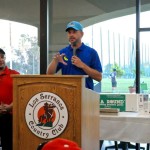
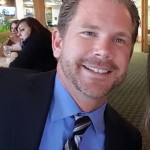

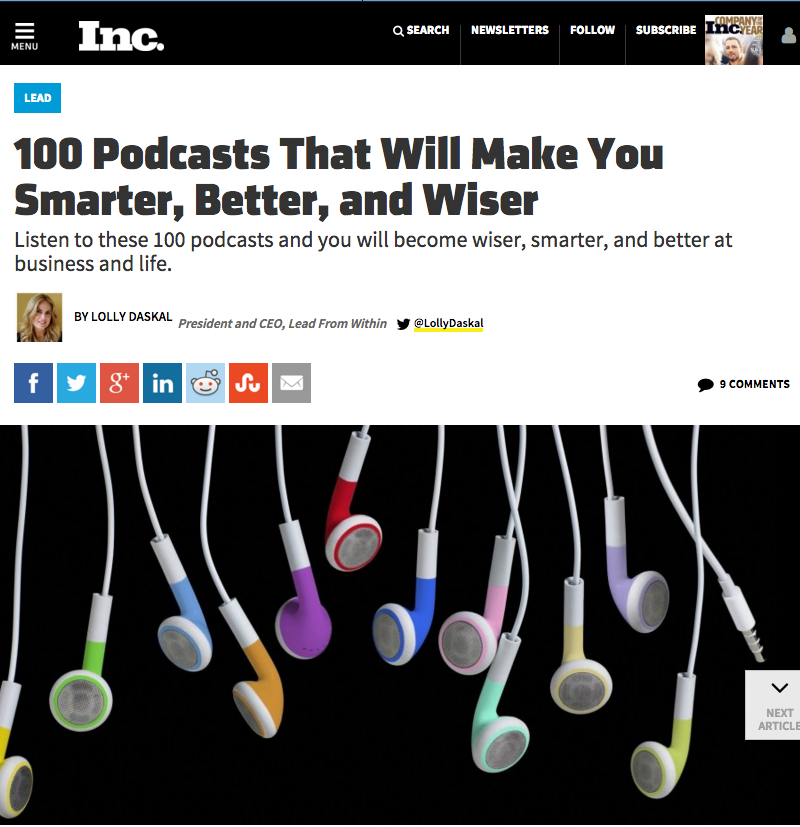 Check out the entire post: 100 Podcasts That Will Make You Smarter, Better, and Wiser
Check out the entire post: 100 Podcasts That Will Make You Smarter, Better, and Wiser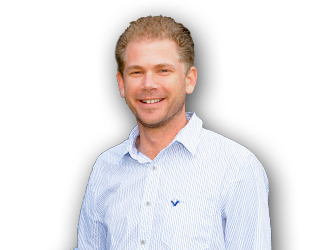















 “The first things leaders need to do is to realize that they impact the environment or the context in which people work. Very often what leaders do is they look at the mistakes employees make and they blame the employee, and they’ve got to stop doing that.”
“The first things leaders need to do is to realize that they impact the environment or the context in which people work. Very often what leaders do is they look at the mistakes employees make and they blame the employee, and they’ve got to stop doing that.”
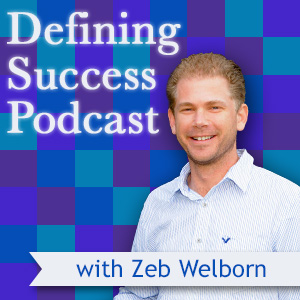











 Dr. Mollie wrote a book called Walking with Justice about her greatest life mentor Judge Max Rosenn. She says he’s hard to describe and quantify, his colleagues referred to him as a Judge’s Judge. He was a prominent federal judge on the 3rd circuit court of appeals and, to this day, he is still one of the most cited jurists in American history. While by his side she saw portraits, law libraries, even a whole federal building dedicated to him. While he was still alive they renamed the building that he went to work to everyday. He had a great deal of impact.
Dr. Mollie wrote a book called Walking with Justice about her greatest life mentor Judge Max Rosenn. She says he’s hard to describe and quantify, his colleagues referred to him as a Judge’s Judge. He was a prominent federal judge on the 3rd circuit court of appeals and, to this day, he is still one of the most cited jurists in American history. While by his side she saw portraits, law libraries, even a whole federal building dedicated to him. While he was still alive they renamed the building that he went to work to everyday. He had a great deal of impact.




 Dr. Nick Morgan was an academic. He taught Shakespeare and public speaking. He trained as an actor, did that for a while. Had some children he had to take care of, so he had to get a paying job. He worked briefly as a speechwriter for a governor. Then he entered the business world via consulting and then started his own business.
Dr. Nick Morgan was an academic. He taught Shakespeare and public speaking. He trained as an actor, did that for a while. Had some children he had to take care of, so he had to get a paying job. He worked briefly as a speechwriter for a governor. Then he entered the business world via consulting and then started his own business. Nick has a new book, Power Cues, in which he shares some personal stories some reasons why he cares so much about body language and speaking. “That’s about being authentic and getting my voice out there.” The book also discusses the relationship between neuroscience and how communication actually works. “It’s a big step for me.”
Nick has a new book, Power Cues, in which he shares some personal stories some reasons why he cares so much about body language and speaking. “That’s about being authentic and getting my voice out there.” The book also discusses the relationship between neuroscience and how communication actually works. “It’s a big step for me.”






 Thomas Dowd is the author of his book, Displacement Day. It’s about trying to recover from losing a job and going out job hunting. One of the things that I thought was very interesting was the way he would go about job seeking and how he recommends others do it as well. It’s the difference between networking and job searching.
Thomas Dowd is the author of his book, Displacement Day. It’s about trying to recover from losing a job and going out job hunting. One of the things that I thought was very interesting was the way he would go about job seeking and how he recommends others do it as well. It’s the difference between networking and job searching.


